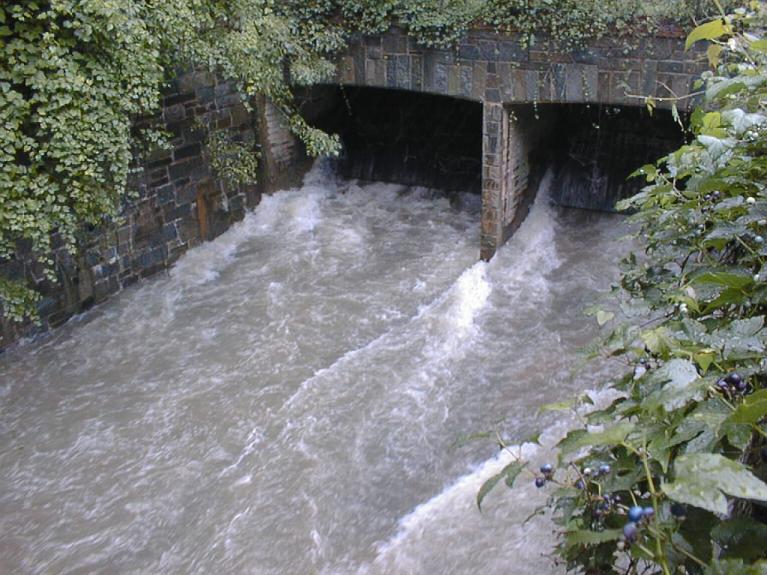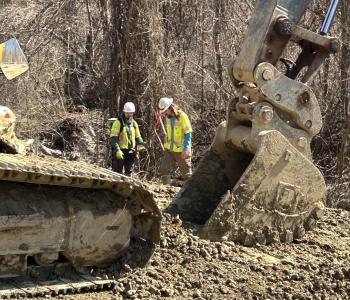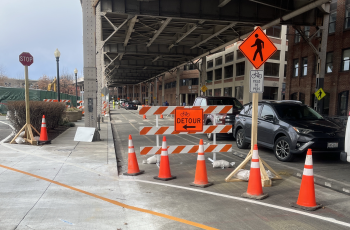Public comment period opens for Clean Rivers Project to protect Piney Branch

Tunnel project to reduce combined sewer overflows to Piney Branch and Rock Creek
The National Park Service and DC Water invite the public to comment on an Environmental Assessment (EA) for the proposed Piney Branch Tunnel project to improve water quality in Piney Branch, a tributary of Rock Creek.
This project is needed to reduce sewage overflows that contribute to poor water quality in Piney Branch, Rock Creek and ultimately the Potomac River and Chesapeake Bay; and to comply with the 2005 Federal Consent Decree entered into by DC Water, the District of Columbia, the US Environmental Protection Agency, and the US Department of Justice, as amended January 2016 and refined in 2020.
In the late 19th and early 20th centuries, the District’s sewer systems were built to carry both stormwater and sewage in the same pipe. This system works well in dry weather, but during heavy rains, the pipes fill to capacity. When the capacity of the combined sewer system is exceeded during storm events, the excess flow, which is a mixture of sewage and stormwater runoff, discharges directly to the rivers and their tributaries at numerous outfalls. DC Water seeks to control these overflows to improve water quality as part of the DC Clean Rivers Project.
DC Water proposes to build an underground tunnel to capture a minimum of 4.2-million-gallons of sewage combined with stormwater, which would otherwise overflow into Piney Branch during heavy rains. The project would include construction of a diversion structure at the site to redirect sewer flows to Piney Branch into the tunnel and eventually convey the combined sewage to DC Water’s Blue Plains Advanced Wastewater Treatment Plant when the system can handle the volume.
It is estimated nearly 40 million gallons of untreated combined sewer discharge overflow into Piney Branch at the site every year. The Piney Branch Tunnel project would reduce the overflows into Piney Branch by 96% by volume and limit the frequency of events from 25 to one in a year of average rainfall.
The public is invited to review and provide comments on the EA, which is available online here. The online comment form is available on the webpage and may be accessed by clicking “Open for Comment” under the project links on the left of the page. Click on the link to the EA and then click “Comment Now” to access the online comment form.
Comments may be submitted online until 11:59 p.m. on December 6, 2024. If you prefer to mail your comments, make sure they are postmarked by December 6, 2024, to receive consideration. Mail comments to the following address:
Superintendent
Rock Creek Park
RE: Piney Branch Tunnel EA
3545 Williamsburg Lane NW
Washington, DC 20008
Please be aware the entire comment submitted – including personal identifying information such as address, phone number, and email address – may be made publicly available. Requests to withhold such personal identifying information from public release will be considered, but there is no guarantee that it will be withheld.
More information on the Clean Rivers Project can be found at dcwater.com/cleanrivers. More information on this project can be found at dcwater.com/pbs.






